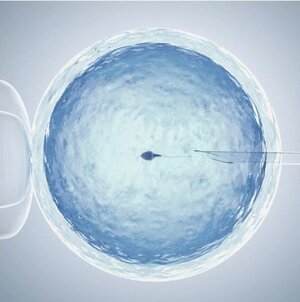IVF Treatments: IVF VS. ICSI
IVF Treatments: IVF VS. ICSI
In an IVF cycle you may hear your doctors referring to IVF and ICSI. While it may result in differences of fertilization rates (more on that below), it makes no difference to your stimulation or your cycle procedures, it is simply how the eggs are going to be inseminated. Your cycle will still start with controlled ovarian stimulation, monitoring and then trigger injection, followed by your egg collection. After egg collection, the eggs need to meet with the sperm (#datenight), and this needs to happen with either IVF or ICSI.
IVF
With IVF, a measured concentration of washed sperm is placed with the eggs. This is the more natural, less invasive way, as the eggs are not manipulated. Your doctor may be happy for you to have IVF done if:
- You have had natural pregnancies before
- You have good sperm quality
- You have not had poor or failed fertilization in the past
The following morning, the fluffy cumulus cells are stripped away and the eggs are examined for the presence of 2 pro nuclei, or 2PN. This indicates that successful fertilization has occurred. Some eggs may be unfertilized or abnormally fertilized. It is generally a good result to see 50% of eggs fertilize.
ICSI
ICSI stands for Intracytoplasmic Sperm Injection and is a process in which the eggs are stripped of their fluffy cumulus cells and examined for the presence of a polar body. Anything with a polar body is a mature egg and can be injected with a single sperm. Only the eggs that are mature can be injected as these eggs have released half of their chromosomes to become a haploid cell and therefore can accept the chromosomes from a sperm. As with IVF, the following morning, the eggs are checked for signs of fertilization. It is generally good to see 50% of eggs fertilize, we don’t expect a massive difference just because it was ICSI. But some patients that do very poorly with IVF do get much better results with ICSI (or the other way around sometimes!).
Your doctor may suggest ICSI if you fit into some specific criteria such as:
- History of poor fertilization
- Very poor sperm count or motility
- High DNA fragmentation
- Are having particular types of genetic testing done
So, is one better than the other? No. Statistically, success rates with IVF and ICSI are comparable and it’s up to your individual circumstances and for your doctor to decide what is better for you. Sometimes, some patients do better with one over the other, and some clinics actually perform ICSI in all cycles as that’s how they get their best results. Whichever method you have done, know that your specialist has your best interests in mind and is making the best decisions for your situation.
Medical Disclaimer:
The information provided in this blog is intended for general informational purposes only and should not be considered as a substitute for professional medical advice, diagnosis, or treatment. Always seek the advice of your healthcare provider or qualified medical professional with any questions you may have regarding a medical condition. Never disregard professional medical advice or delay in seeking it because of something you have read in this blog.

